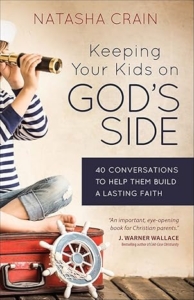Much has been written about both the Biblical illiteracy of teenage believers and the flight of young people from the Church. Many have observed this trend, and I too have witnessed it anecdotally as a youth pastor (and shamefully, I contributed to the trend for some time before I changed course). Some writers and Christian observers deny the flight of young people altogether, but the growing statistics should alarm us enough as Church leaders to do something about the dilemma. My hope in this post is to simply consolidate some of the research (many of the summaries are directly quoted) so you can decide for yourself. I’ve organized the recent findings in a way that illuminates the problem in a continually updated article found here:
Have you ever regretted something you posted on social media? Don’t feel bad, 57% of Americans who use social media have posted something they regret afterward. And that’s just adults. Now jump into the brain of a 10-year-old. Yes, a 10-year-old. Nielsen research labels age 10 the “mobile adoption sweet spot” because the average age a child receives a smartphone today is 10.3 years-old. How is a 10-year-old supposed to make wise decisions with social media like Snapchat, Instagram, and Facebook? (especially when COPPA—Child Online Privacy Protection Act—regulates that you have to be at least 13 to be on Snapchat, Instagram or Facebook). Young people don’t think for more than 3 seconds before they hit SEND. Sadly, the pics they post, the rants they engage in… even the offhand comments they make… often have dire consequences. In law enforcement, we deal with the fallout of these posts daily. If you’re familiar with our work here at ColdCaseChristianity.com, you know how important we think it is to equip and prepare the next generation of Christian Case Makers. Part of this mission is to help young Christians understand how to navigate social media and post wisely in an insecure world. To help do this, I thought I’d ask the guy who literally just wrote the book on it.
Jonathan McKee is the author of over 20 books including the brand new, The Teens Guide to Social Media and Mobile Devices: Wise Posting in an Insecure World. Jonathan speaks to parents and leaders across the country about today’s teens and addresses the “smartphone generation” directly in school assemblies and events worldwide. Last week I had the opportunity to pick Jonathan’s brain about this important subject, and I think you’ll find the conversation eye-opening.
J. Warner:
Jonathan, I see you as one of the foremost experts and important voices in youth ministry today. Were you seeing something in the lives of students that prompted you to write this book? Why, of all the topics you could (and have) written about, did you decide to write this book now?
Jonathan:
Great question and the answer is because over three-quarters of teenagers now have a smartphone, yet very few people are engaging them in conversations about developing wise decision-making skills with this device. Most teens are learning lessons the hard way. They post a pic and regret it later. They use an app that brags “the pics disappear” and they interpret that as freedom from accountability. A screenshot later, they realize the post wasn’t as temporary as they thought it was.
It happens all the time. A boy asks a girl to send a sexy pic. Girl sends the pic. Girl and boy break up. Next thing you know, the boy sends a pic to the whole school with the caption, “What a whore!” The girl is devastated. Every high school has at least one story like this. Principals deal with this kind of drama continually. It’s why a whole generation of young people resonated with the Netflix Series, 13 Reasons Why. It mirrored much of what they saw in real life. If only parents were engaging their kids in conversations about these real-life situations.
J. Warner:
Parents aren’t engaging their kids in these conversations. Perhaps they feel ill-equipped. Is that why you address parents specifically in the beginning of a book written to teenagers—an interesting approach, by the way—briefly giving advice to the “caring parent or adult” who bought this book for the teen they care about?
Jonathan:
Exactly. The book is for teenagers, but the publisher and I know that it’s typically Mom, Dad, or Grandma who buys the book for the teenager and says, “Here, you should read this!” In fact, I’ve already been hearing lots of parents call this book their new “phone contract” their kids have to read before they get a smartphone. But yes, I addressed parents quickly at the beginning to answer some of the daunting questions they have, like what age should my kids get a phone, or what parental controls should I use? So I answer those quickly and then encourage them to use the book as a tool to engage their kids in conversation about this important subject. In other words, don’t just hand your kid this book, use the discussion questions at the end of each chapter to ask them, “What did you think about this Chapter on Snapchat?”
J. Warner:
Great chapter, by the way. So what do you think is the one most pressing risk you see for students and their use of social media?
Jonathan:
I’ll answer that by summarizing several chapters into one soundbyte: think before you press SEND. So much of where kids get into trouble is when they snap a pic, send a tweet or post a comment without giving it any thought whatsoever. Their pic gets circulated more than they thought, their tweet gets misinterpreted and their comment starts a fight. We need to teach our kids to pause before they post.
J. Warner:
That’s a nice soundbite.
Jonathan:
Ha. Thank you. Parents need to help their kids consider the permanence of their posts (again with the alliteration). They need to begin to understand: nothing you post is temporary. So don’t post anything you don’t want your principal, Grandma, your future boss… and Jesus seeing (Jesus is on Instagram, you know).
J. Warner:
What would you say to parents who are concerned their kids are spending too much time on Social Media?
Jonathan:
Parenting is a balance of bonding and boundaries. Bonding is hanging out with our kids, playing with our kids… eating greasy French fries with our kids. Boundaries are when we say, “Sorry, but you’re not going to that party,” or “Nope, you’re not going to have your phone by your bedside at night; I’m going to charge your phone for you. It’s a free service I provide as your Mom.”
J. Warner:
Nice.
Jonathan:
Both bonding and boundaries are vital. So, if your kid is glued to their phone so much it is interfering with their sleep, their grades, and their relationships, Mom or Dad should respond in both areas. Parents can have the boundary of “no tech at the table,” and conversation tends to eventually emerge at family meals. At the same time, parents can engage their kids in conversation by asking them questions about their own technology, not lecturing, but asking questions and listening. Maybe read a relevant article like this one, Half of Teens Feel Addicted to Their Phones, and ask:
How do you think this survey would have turned out if they asked young people this question at your school?
What would you have answered?
What is a sign of being addicted to your phone?
What is a good way to make sure your phone doesn’t hinder your relationships?
Teens don’t want to be lectured. So, offer them information and ask their opinion. Become good at spotting relevant articles and asking, “Do you think this is right?” Don’t tell them the answer, lead them to the answer.
J. Warner:
How do you see the use of social media shaping the culture in the years to come, and what advice do you have for Christian kids to make the best use of these platforms?
Jonathan:
I think our world is still figuring out the ramifications of what they created. It’s like seatbelts. Cars were invented in the early 1900s. It wasn’t until January 1, 1968, those car companies were required by law to provide seatbelts in all seating positions. Then it wasn’t until 1983 that laws kicked in to require people to actually wear them. That’s decades upon decades!
Consider the history of the Smartphone. In the early 2000’s very few people had Smartphones. Then Jobs announced the first iPhone in 2007. American didn’t even cross the 50% mark for Smartphone ownership until 2012. When it comes to young people carrying around everything at their fingertips… we’re talking about something most young people have experienced less than five years. I think in the next decade our world is going to experience some life-changing consequences that will result in some severe adjustments. Hopefully, we will adapt and become smarter than our smartphone. As for Christians, the main lesson we need to learn is the lesson of loving others. We need to learn that a smartphone is a great tool for connecting with people outside the room… when it doesn’t interfere with the relationships of people inside the room.
Jesus was a man who noticed the unnoticed. When he was walking through a crowd of people he noticed the slightest touch from a woman who just barely brushed his garment. He stopped and said, “Who touched me?” And everyone thought he was crazy. But he persisted. “Who touched me?” And he gave attention to a woman that everyone else was ignoring. He did the same to a swindler named Zacchaeus and a promiscuous woman sitting at the well. Jesus didn’t ignore the least of the people in the room. Hopefully, Christians will learn to put their phones in their pocket and follow that lead.
Few people have more experience with young Christians than Jonathan McKee. You can get a weekly dose of Jonathan on his blog, and read more from him about teens, parenting and youth ministry in his numerous helpful books available on Amazon.com and a bookstore near you.
J. Warner Wallace is a Cold-Case Detective, Christian Case Maker, Senior Fellow at the Colson Center for Christian Worldview, and the author of Cold-Case Christianity, Cold-Case Christianity for Kids, God’s Crime Scene, God’s Crime Scene for Kids, and Forensic Faith.
At the Colson Center for Christian Worldview, we often talk about the importance of worldview. Each of us, as Christians, ought to allow our Christian beliefs to shape the way we think about every aspect of life, including the way we consider notions of beauty and artistic expression. That’s why I was delighted to hear about a new concept album from Aryn Michelle, a Christian pop and alternative rock artist. Aryn just released a series of songs (in a collection called The Realist Thing) inspired by William Lane Craig’s book, Reasonable Faith. That’s right, an apologetics album of sorts, walking through “several philosophical arguments for the existence of God and the primary evidences for Jesus Christ as his son.” Sounds interesting, right? Aryn agreed to let me interview her about this groundbreaking effort:
J. Warner:
Aryn, I will confess that I was not familiar with your work prior to this collection of songs. I was incredibly impressed with the creativity and quality of the effort, can you tell us something about your musical journey?
Aryn:
I began writing songs when I was fifteen years old. Initially I had hoped that God would use me as a “light in the darkness” in that I would be a believer writing and working in the secular music industry while always maintaining artistry from a Christian perspective. I pursued this goal for almost ten years (and two albums) before I had the revelation that perhaps working within the secular music industry was how I wanted God to use me, but was not necessarily how God had gifted and equipped me. It took me that long to realize that I needed to approach God and ask him how HE wanted to use my life and the giftedness he had given me. I could see that God had brought me up in a background of church music (I’m the daughter of a music minister), and he has given me a heart for the church and for encouraging the people of God. Even when I was not making “Christian” music, followers of Jesus tended to be the ones who responded to my music. About 5 years ago I turned my attention to write explicitly faith-based music in order to encourage believers, dig deep into God’s truth and follow in obedience in using my gifts for God’s calling.
J. Warner:
In your video you mention being in a place in your life as a Christian where you had many questions. Can you tell us a little bit about that and how Christian apologetics literature helped you to answer some of those questions?
Aryn:
Several years ago I approached one of our pastors and asked to meet with him to talk about some struggles I was having. I told him that while I felt confident in my heart about my belief in Jesus, I felt like my head had not caught up with where my heart was. I felt like I had been neglecting the life of the mind in regards to my faith. I didn’t often have intellectual conversations with other believers about difficult questions where philosophy and theology converged. I was frustrated that it felt like no one around me was expressing an interest to seek out the answer to hard questions. He gave me the wise counsel that if I had a thirst for knowledge then I needed to ask God to reveal to me answers and also to seek out that knowledge. To read books, to dig deeper, to go out searching. He suggested a few books to start with and from that point I kept reading and eventually decided to tackle Dr. Craig’s book Reasonable Faith. This book was very helpful on my journey into a deeper life of the mind because it comprehensively covered a good deal of what I was hoping to learn. I want to clearly state that I believe the testimony of the Holy Spirit is the greatest witness one can give, but I was thankful to be able to also articulate philosophical arguments for the existence of God and evidences for Jesus Christ as God’s son after reading that book in particular
J. Warner:
It’s amazing to me that you actually wrote songs about the evidence for theism and Christianity. Can you tell our readers about the evidences that inspired you to write each song?
Aryn:
The album features a prelude and postlude (both entitled “Honesty”) that give the listener my personal perspective and state of mind as I began and concluded this project. Beyond those two songs each one of the songs aligns with a different argument featured in Dr. Craig’s book. “The Realest Things” discusses the ontological argument for the existence of God, summarized in the line “if something could be greater than God, it would be God.” The next song, “The Question,” discusses the cosmological argument when it asks the question, “Why is there something rather than nothing?” The teleological argument is featured in the song “Order,” where I give examples of intelligent design and fine-tuning in lines such as, “there’s a constant in the pull of gravity, a balance of the forces strong and weak.” Following that is the moral argument for the existence of God in the song “Good” which says, “If there is good, don’t you think there is God?” After that song I transition into two songs dealing with evidences for Jesus Christ as God’s son. The first of those songs, “Miracle Man” explores the miracles and eyewitness accounts of the works of Jesus. The next songs entitled, “The Story of Redemption” explores the self-understanding and resurrection accounts of Jesus. It was obviously a great challenge to condense such rich material into one song a piece for each argument, but my hope is that I’ve tried to grasp a key component of each argument in a memorable way.
J. Warner:
This is such an interesting project in that it has the ability to reach an audience that standard apologetics blogs, book and videos can’t reach. What is your hope for the concept album?
Aryn:
My primary hope for this album is that it can be an equipping tool and encouragement for believers. I wanted to give people a song in their hearts to go along with the deep thoughts in their heads. My hope is that when people are striving to call these arguments to mind that they can use the songs to help them remember and express what these arguments are about. Music is a powerful tool for engaging memory and emotions. I also hope that more artists will strive to create a marriage of creative expression and reason. Sometimes we may be tempted to think that creativity and rationality are mutually exclusive or working against each other, but I know that God has created us with a heart AND a mind to be engaged for service to him.
J. Warner:
This last question cheats a bit and includes a few related questions: Will you be singing these songs in live concert settings, ( and is it difficult to find venues that are open to such an interesting concept)? How can our readers learn more about you and what’s next, now that you’ve tackled Christian apologetics?
Aryn:
I primarily perform these songs in house concerts. For this project in particular I find private house concerts to be the best venues to share the music because it allows me an intimate setting to talk and really communicate the motivation behind the album and also the individual concepts within each song. I have also attended a few apologetics gatherings for students and been able to share the songs in that setting. I also hope to be able to take the music to churches or bible studies who may have an apologetics emphasis. I think the main point is having an environment where discussion and thoughtfulness can thrive. If people would like to stay in touch with me they can find me at my website: www.arynmichelle.com, or on Facebook at www.facebook.com/arynmichelleband.
Aryn’s new album is more than a great idea, it’s a great collection of songs and an excellent example of how a Christian worldview can shape every aspect of someone’s life. Aryn has employed more than God’s gifting to create this project; she’s allowed her Christian worldview to shape and inform the words in every song. The result is excellence in both word and melody. I cannot recommend it more.
J. Warner Wallace is a Cold-Case Detective, Christian Case Maker, Senior Fellow at the Colson Center for Christian Worldview, and the author of Cold-Case Christianity, Cold-Case Christianity for Kids, God’s Crime Scene, God’s Crime Scene for Kids, and Forensic Faith.
By Michael C. Sherrard
These kinds of questions keep you awake at night. Knowing how and when to talk to your children about sensitive issues isn’t an exact science. But we better figure it out quick. While we contemplate the best way to do it, our little ones are being taught by someone else. The internet, social media, and public education have changed the rules of the game. With that in mind, here are four practical suggestions for parents and church leaders on how to get ahead of the issue and teach your children about abortion.
1. START EARLY.
Parents always struggle with “how soon do I allow my children to see the brokenness in the world?” My wife, Terri, and I err on the side of sooner than later. I want the first time my children to be horrified by the brokenness of our world to be in the safety of our company and in the context of the gospel. Besides, in the tech age, I’d be foolish to think I can keep the filth away. It will find them. My children need to be ready for when they encounter the darkness.
We need to be proactive in teaching our children. This doesn’t mean that we the force the issue, though. A good way to be proactive but not overbearing is to use questions to gently bring up sensitive subjects. They way I broached abortion with my oldest daughter (age 7) was by asking her if she knew why I went on a recent trip to England. She said, “to speak.” I said, “Yep. I went to speak about abortion. Have you heard that word before?” She shook her head no. I left it there. One minute later she asked what it meant, and we had an amazing conversation.
Good teaching requires knowing your children’s knowledge and assumptions. Bad teachers simply lecture and then patronizingly ask, “Does that make sense?” Don’t do this with your children. Instead, ask your children questions to find out where they are on abortion. Are they oblivious, disinterested, or already educated? Find out. Asking questions also allows for self discovery. You’d be amazed at the insight of seven year olds. They are already making sense of the world. They are forming their moral framework. When simply asked a question and introduced to abortion, children often know what to think if it.(1)
2. SIMPLIFY THE ISSUE.
Children, and adults for that matter, are confused about the pro-life position. We must simplify it. People need to know that we are pro-life because we believe it is wrong to intentionally kill an innocent human being. Abortion is the killing of an innocent human being. Therefore, we believe abortion is wrong.
Children also need to know the reasons that support this belief. They need to know that along with scripture we are pro-life because science and philosophy direct us to be. Science informs us that from the earliest stages of development the unborn are distinct, living, and whole human beings. And philosophically, we understand that there is nothing morally significant in the difference between an embryo and adult that would justify killing the unborn. Differences of size, level of development, environment, and degree of dependency are not good reasons to kill the unborn.(2)
The case for life is reasonable, rationale, and remarkably simple. Children easily grasp it. Use questions to simplify the issue, teach the pro-life syllogism, and explain the science and philosophy that support our conclusion.(3) Here are some questions you can use.
- “Is it okay to kill humans?”
- “Are the unborn human, and if not what are they?”
- “Would it be okay to kill unborn humans because they are smaller, not aware of themselves, dependent on their mom for survival, and living in her womb?”
- “Are humans valuable because of what they can do like be self-aware and able to care for themselves? Or are they valuable because of what they are, a human being?”
- “If the unborn are valuable because they are human, what should we do with them?”
There you go. It’s that simple. You can teach your children the scientific and philosophical case for life by having a conversation directed by the right questions.
3. TALK ABOUT IT FROM THE PULPIT.
I understand that many pastors don’t want the controversy that might accompany speaking on a social issue, but neutrally isn’t an option when it comes to abortion. Children are very observant. When the church is silent on abortion one of two things is communicated to them: either that abortion is tolerable or that it is unforgivable. Both positions are false.
The sin of abortion is a horrific sin for which the blood of Jesus Christ is sufficient. People in our congregation need to hear that abortion is wrong and that there is mercy, forgiveness, and healing for those who have participated in one. When the pulpit addresses abortion, it shows the relevancy of Christianity to our children. It shows that it speaks to all of life. Speaking on it also allows sin to be seen in a concrete rather than abstract manner which makes the gospel more tangible. If you want to faithfully teach your children about abortion, the pulpit must be involved. When it is not, the church undermines the work in the home. (4)
4. CARE FOR THOSE AFFECTED BY ABORTION.
Training our children to be pro-life doesn’t mean that we just make then apologists. We want them to serve and love those affected by abortion. Whether this means that they serve in a local pregnancy resource center, or simply show compassion to their friends who have had an abortion, actively loving those affected by abortion must be stressed.
Do this as a family or a church family. Our youth group went and served our local pregnancy resource center by doing odd jobs for them. Our youth painted, cleaned up the grounds, folded clothes, and many other things. They also were given a short presentation by the director educating them on what the resource center did for woman. Many of our kids had no idea what the resource center was doing. This experience opened their eyes to the compassion in the pro-life movement and the reality of abortion in a way that words never could.
Parents, church leaders, we must be motivated. Children are almost always ready for more than we give them. Knowing when they are ready for something isn’t always clear. But I would rather make a mistake a time or two of addressing something too early rather than too late. So start early and teach the simple pro-life message in the home and the church, and may we all show the compassion that springs from the love of our Lord.
______________________________________
(1) Check out “Children asked about Abortion” by my friends at the Human Coalition..
(2) See “How to Defend Your Pro-Life Views in 5 Minutes or Less” by Scott Klusendorf for an excellent, concise summary of the pro-life position.
(3) A syllogism is simply a conclusion that is supported by reasons. This is the pro-life syllogism in case you missed it.
- Premise/Reason 1: It is wrong to intentionally kill an innocent human being.
- Premise/Reason 2: Abortion is the killing of an innocent human being.
- Conclusion: Therefore, abortion is wrong.
(4) I am a pastor, and I’ve experienced the fruit of speaking an equipping, gospel centered message on abortion. Pastors, you can win on this issue. You don’t need to fear taking it on. For our story and some resources on how to do this is your church, visit the Pro-Life Pastors Initiative at plpi.info.
________________________________
Michael C. Sherrard is a pastor, the director of Ratio Christi College Prep, and the author of Relational Apologetics. Booking info and such can be found at michaelcsherrard.com.
I’m excited to share an interview with Marcia Montenegro!
Marcia was involved for many years in Eastern and New Age beliefs, and was a licensed professional astrologer. She became a Christian in 1990 and today has a ministry called Christian Answers for the New Age. Her ministry exists to 1) educate Christians about the New Age and occult so they can be more discerning and equipped to witness, and 2) reach people in the New Age and the occult with the love and truth of the Gospel. Marcia has a Masters in Religion from Southern Evangelical Seminary and is a missionary with Fellowship International Mission. She has spoken in 30 states, is a frequent radio guest, and has published articles in several Christian publications. She is the mother of an adult son, and is the author of SpellBound: The Paranormal Seduction of Today’s Kids.
I had the opportunity to ask Marcia several questions on what Christian parents need to know about New Age and occult beliefs. This is an area I personally knew very little about before doing this interview. I learned a lot, and I know you will too! As Marcia explains, your kids are probably exposed to these beliefs more than you realize.
1. Marcia, can you start by telling us a little about your own journey from being a professional astrologer to becoming a Christian?
I was deeply involved in the New Age and followed Eastern spiritual teachings (Hindu, Buddhist, and Taoist) for many years. I also practiced and taught astrology. I was very hostile to what I viewed as narrow-minded Christianity. In the year I ended my term as President of the Astrological Society in Atlanta, I suddenly experienced a compulsion to go to church. This led me to attend a (very open-minded) church several months later, where I amazingly experienced the feeling of God’s love pouring down on me (from a personal God I didn’t even believe in!). I then gave up astrology. I eventually encountered and began trusting in Jesus while reading the Gospel of Matthew. All of this took place over just 8 or 9 months!
2. Can you help parents understand exactly what “New Age” means, and why New Age ideas are so appealing to young people?
The term “New Age” covers a broad ground and can be difficult to define. The New Age itself doesn’t even use the term “New Age!” The more popular term is “spirituality” – someone forming their own spiritual path. That type of path is usually New Age or partly New Age.
But here is how I define New Age: It is a network of beliefs whose roots are Gnostic, Eastern, and New Thought.
The Gnostic part values spiritual above the material/physical; the material is merely a manifestation of the spiritual, so everything is spiritual. In New Age views, the body is a manifestation of the spiritual state.
The Eastern beliefs of Taoism, Hinduism, and Buddhism contribute several ideas to the New Age: principles of reincarnation, an impersonal source that we all come from and go back to, the view that this world is not ultimately real, the claim that there are no absolutes (all spirituality is subjective), and the need for Eastern-based meditation to achieve spiritual understanding or awakening.
Finally, the New Age draws heavily from New Thought, which includes the belief that Jesus came to correct wrong thinking and model how to achieve Christ Consciousness, the awareness of our innate divinity. New Thought also teaches that one’s thoughts and words can bring one’s desires into reality via certain techniques. The bestselling book, The Secret, is a classic example of New Thought. New Thought claims to be Christian and often sounds like it. It is very deceptive.
You can find people in the New Age anywhere along this spectrum from Gnostic to Eastern to New Thought, as well as many who combine these beliefs. Additionally, the New Age adopts some occult views and practices (see my response to the next question.)
The New Age can appeal to young people for several reasons. One is because it is very different from the Judeo-Christian worldview, which makes it intriguing. Another is that it seems to offer ancient wisdom, since Eastern and pagan beliefs were established before Christianity. Some areas of the New Age emphasize the power or divinity of the female, and draw women in that way.
One of the chief appeals is that the New Age is experiential in nature, so what a person experiences and feels is highly valued over objective truth. This allows you to have a customized spirituality, which is especially appealing to young people.
3. Could you also define the occult and explain how occult ideas relate to New Age ideas?
The occult is a set of practices based on Deuteronomy 18:10-12, where God lists and denounces all of them. They are divination (often called fortunetelling), spirit contact, and sorcery.
Divination is the practice of gaining information by reading hidden meanings in nature or patterns (for example, astrology, tarot cards, numerology or palm reading) or via supernatural means (for example, psychic powers).
Spirit contact is seeking information or guidance from disembodied beings, who are believed to be ghosts (dead people), aliens, ascended masters, angels or deities from non-Christian religions.
Sorcery (today usually called ritual or ceremonial magic) involves using the will to bring about a desired end through incantations, rituals, magical tools, contact with spirit beings, and/or the manipulation of powers or energies.
Although many New Agers use occult practices or consult those in the occult, the New Age and occult worldviews differ. The New Age is transcendent and future-oriented; the person is always seen as evolving toward a goal, learning lessons, and eventually being liberated from this life and reality.
The occult is more here-and-now oriented, is more pragmatic in nature, and focuses on the practical use of one’s energy and/or nature’s energy to manifest happiness and results.
As a general disclaimer, New Agers and occultists disagree amongst themselves on their beliefs, and certainly some would likely disagree with my descriptions as well.
4. In your experience, what are the dangers of kids getting interested in these ideas?
My two main concerns are desensitization and glamorization. I believe that the massive amounts of books, TV shows, and movies that promote occultism and heroes/heroines who have occult powers have desensitized the culture as a whole. No longer is it seen as a bad thing for a child to pretend to cast spells, for example; now that is viewed almost endearingly. It is easy to become desensitized to the fact that these activities are evil.
Ultimately, being desensitized can lead to acceptance of New Age or occult beliefs, which in turn can lead to disinterest in or rejection of what God has to say about false beliefs. That acceptance can lead to active participation in New Age or occult practices.
5. Most parents probably aren’t aware of how New Age or occult ideas might touch their kids. Can you give us examples of where kids might encounter New Age or occult ideas in popular culture today?
One of the most popular ways is the Ouija Board, made by Parker Brothers and sold in toy stores. It was originally designed by a Spiritualist as a tool for contacting the dead. The dead cannot respond to us, but fallen angels can and do. They don’t care if you are using the Board as a game. A well-known series of books, the Seth series, came about from the author’s initial contact with an entity calling itself Seth via the Ouija Board. Seth eventually began to speak directly through the author, Jane Roberts, while she was in a deep trance state, and these messages formed the book series (the first one influenced me deeply as a New Ager). There are other cases of people who channeled teachings after using a Ouija Board. It’s not simply a game.
Probably the biggest purveyor of occult concepts is the media: television, video games, and movies which emphasize stories where the hero or heroine wields supernatural powers. Some of these abilities are harmless fantasy (e.g., X-ray vision), while others involve casting spells, using psychic powers, or even contacting spirits. It is common for books and movies to mix fantasy with the occult, further confusing the problem.
Parents often want a list of media to avoid, but it is impossible to maintain such a list. Ideally, parents need to understand Deuteronomy 18:10-12 so they can recognize occult ideas and teach their children to be discerning.
I offer parents a resource for this in my book, SpellBound: The Paranormal Seduction of Today’s Kids (2006), which is now on Kindle and is an e-book on sites such as Barnes & Noble and Christianbook.com. This is a guide for parents (and others) that offers suggestions on how to talk to children about these areas and how to answer objections.
6. What do you feel is the best way to handle New Age/occult exposure with your kids? What should parents say?
My concern is not so much that a TV program or book contains New Age/occult ideas as it is that a program or book glamorizes or promotes them.
A lot depends on the age and maturity of the child. I would say that kids under age 12 should have no exposure to books or media that promote occult ideas, no matter how mildly. At this age, children don’t yet have critical thinking skills and they emotionally identify with the heroes.
For early teens, be very selective and discuss any questionable material that pops up. I would completely avoid books or programs that have a focus on occult themes or have heroes who blatantly practice occultism.
For older teens, there is less control, of course, but if you discover they are reading or have watched something that promotes occult or New Age ideas, have a discussion with them. Ask them what they think of it, show them Scripture, and help them understand it is a fallen world that is under the sway of the evil one (1 John 5:19). Evil things will be accepted and even admired by the world, but that doesn’t make them harmless.
In my book for parents on the occult, I give suggestions at the end of each chapter on how to talk to your children about that chapter’s particular topic.
7. If there are parents reading this whose kids are already involved somehow in New Age/occult ideas, what resources do you recommend to help them?
I have articles on the occult on my website at www.christiananswersforthenewage.org. Also, aside from my book, there is Jeff Harshbarger’s From Darkness to Light: How to Rescue Someone You Love From the Occult.
For older teens and parents, a resource explaining biblical miracles versus occult paranormal activities is Norman Geisler’s book, Signs and Wonders: Healings, Miracles, and Unusual Events: Which Are Real? Which Are Supernormal? Which Are Counterfeit?
If your child is getting interested or involved in the occult, it is imperative to have a talk with him or her. Don’t postpone it or hope it goes away. At the same time, don’t show fear of it. Ask questions, use Scripture to show why these areas should be avoided, and make it clear you will not allow occult materials in the home. Be low-key about it, but firm. It is your home and your responsibility to guide your child in the wisdom of the Lord.
Visit Natasha’s website at ChristianMomThoughts.com
Resources for Greater Impact:
“People almost invariably arrive at their beliefs not on the basis of proof but on the basis of what they find attractive,” said Blaise Pascal. Indeed, attraction, not reason, is the engine of the LGBTQ movement. Otherwise it wouldn’t be riddled with contradictions such as:
There are no differences between men and women.
Except when we demand the right to marry people of the same sex because people of the opposite sex are just too different from people of the same sex.
You ought not judge me for what I do.
Except I can judge you for what you do. You’re an ignorant, intolerant bigot for supporting your political goals rather than mine, and for refusing to celebrate my same sex wedding.
People should be tolerant!
Except me when I’m intolerant of you and your position.
Discrimination is wrong!
Except when I discriminate against you. After all, I can refuse to bake a cake that’s against same-sex marriage, but you can’t refuse to bake one that’s for it. I’ll sue!
There is no gay agenda.
PayPal Founder Peter Thiel said this at the Republican National Convention: “When I was a kid, the great debate was about how to defeat the Soviet Union. And we won. Now we are told that the great debate is about who gets to use which bathroom. This is a distraction from our real problems. Who cares?”
Except when we at PayPal care enough to cancel our business plans in Charlotte because to the company, it’s absolutely a travesty of justice to keep men out of women’s bathrooms and showers. (Apparently, it’s not a travesty of justice to PayPal when Islamic countries literally murder gays and transsexuals. It’s business as usual for PayPal in those countries.)
It’s wrong to accommodate differences between men and women.
We at the NBA pulled our All-Star game out of Charlotte because it’s wrong to acknowledge and accommodate differences between men and women, especially by keeping them in separate restroom and shower facilities.
Except when we at the NBA acknowledge and accommodate the differences between men and women by keeping them in separate leagues, restrooms and shower facilities.
We are “inclusive and diverse.”
We at the NBA made our decision according to “the long-standing core values of our league. These include not only diversity, inclusion, fairness and respect for others but also the willingness to listen and consider opposing points of view.”
Except when it comes to “diversity, inclusion, fairness and respect” for the people of North Carolina who are being excluded because their diverse and opposing point of view is not respected by us at the NBA. You see, “Inclusion and diversity” to us and other liberals actually means exclusion for those who don’t agree with our approved views. (Whoops, there goes “diversity.”) But of course, you can see our point: it’s completely unreasonable for North Carolinians to want to keep biological men out of women’s shower facilities like we at the NBA do. After all, what could possibly go wrong? In order to rectify the situation, we at the NBA should move the game to New Orleans — a city with the exact same laws as Charlotte. That’ll show everyone that we stand on principle!
Why the Contradictions?
Truth is not the principle that the LGBTQ movement and their allies stand on. Truth is what corresponds to reality, and if anything obviously corresponds to reality it is that men and women are different. Humanity would not exist without those differences. They are not mere preferences; they are built into the very biological nature of the sexes.
Unfortunately, LGBTQ apologists are not concerned with the inherent contradictions in their positions. They are not on a truth quest but a happiness quest. Truth is being suppressed, sometimes intentionally and sometimes unintentionally, because it gets in the way of what they find attractive; what they perceive will make them happy. This is understandable. In fact, all of us are apt to suppress the truth on occasion to get what we want. Most of our problems are self-inflicted and exacerbated by our unwillingness to follow the truth where it leads.
Suppressed truth has terrifying implications because power rather than reason is the currency of influence for those unwilling to follow the truth. If you don’t think so, just begin to articulate a rational case against LGBTQ political goals. You won’t get any rationality back, just hysterical cries that you must be forcibly shut up because you are the next Hitler! That’s what we see out of many in the LGBTQ movement — from the bullying by the misnamed Human Rights Campaign on corporate and sports America all the way to the Supreme Court, which has ignored its oath to uphold the true meaning of Constitution.
HRC bullying is bad enough, but the illegitimate use of power by the Court is even worse. Five lawyers adopted legislative power from the bench to impose their own political views on over three hundred million Americans. Along the way they charged opponents of their views with “animus” against homosexuals. Animus? That’s not true. But even if it was, why does the Court think that voter motivation has anything to do with constitutionality? Even the Court succumbs to the tendency to impugn motives and call people names when it’s short on reason. In fact, when your position isn’t true, you can distract attention from your contradictions by yelling louder and bullying all opponents as the LGBTQ movement is doing.
Regardless of your political party, it’s time to stand up to the bullies, with truth. If you don’t, those with increasing power will use it someday to shut you up on something you care about. Then the ultimate contradiction will be complete — your right to free speech, religion and association guaranteed by our Constitution will not be guaranteed for you anymore either.
Resources for Greater Impact:
I haven’t blogged in the last couple of weeks because my family and I were on vacation. We went on a wonderful trip to the island of Grand Cayman! I successfully managed to avoid email while I was there, but that made for quite a backlog by the time I returned. As I started going through the emails to my blog address, I was struck by the nature of comment after comment left by atheists on various old blog posts while I was gone: one emotional attack after another and not a single discussion of evidence for/against the truth of Christianity.
I actually get such emails all the time and am very used to it. But seeing them all piled together made me realize how often the objective of skeptics is to shame Christians rather than to engage in fair-minded discussions about evidence—something highly ironic given how much skeptics talk in theory about how important evidence is.
Shaming can have an especially negative impact on kids, who are very susceptible to believing emotion-laden statements. But this, too, is something we can (and should) prepare them for. While shaming comes in all kinds of forms, I can roll 90 percent of skeptics’ comments into some version of three general claims.
Here is what your kids are most likely to hear…and what you can do about it.
1. “You’ve been indoctrinated.”
The Implied Shame Claim: You’re just parroting what your parents have drilled into your head throughout your childhood. You’ve been brainwashed and can’t even think for yourself. If you’re brave enough to look at [evidence/science/common sense] instead, you’ll see how crazy Christianity is.
I probably receive at least one blog comment each week about how I’m indoctrinating my kids simply by raising them in a Christian home. Skeptics love to say this. The problem is, it betrays a fundamental misunderstanding of what indoctrination even means. As I explained in this post, indoctrination is “teaching someone to fully accept the ideas, opinions, and beliefs of a particular group and to not consider other ideas, opinions and beliefs.” In other words, indoctrination is a problem with how you teach someone something. It’s not inherently related to any particular belief system, though religion is one type of belief system where indoctrination is possible. Atheists can indoctrinate their kids as well.
So, unless a skeptic has been inside the homes of every Christian in America, seen how we are teaching our kids Christianity, and then had appropriate reason to conclude that we don’tcollectively expose our kids to other ideas, it’s utterly meaningless to say that “Christians indoctrinate their kids.”
What Parents Can Do:
- Make sure you’re not actually indoctrinating your kids. Make sure you are teaching them what other people believe. That doesn’t mean you should teach them that what everyone else believes is true (that’s not logically possible)—it simply means you’re appropriately comparing and contrasting other ideas, opinions, and beliefs.
- Make it explicitly clear to your kids that you don’t want them to believe in Jesus just because you do. (Read why this is so important in my post, Six Scary But Important Words Every Christian Parent Should Say to Their Kids About Faith.) When you’ve actuallydemonstrated that it’s important for them to own their spiritual decisions, they’ll have no reason to later question whether they’ve been “indoctrinated” when someone suggests it.
- Teach your kids the evidence for the truth of Christianity (you’re going to see a recurring theme on this bullet point). In that very process, you’ll be comparing and contrasting truth claims from various worldviews and your kids will know first-hand that you didn’t “indoctrinate” them.
2. “If you allow yourself to think critically, you’ll see there’s no reason to believe in God.”
The Implied Shame Claim: Don’t you want to be a critical thinker? Someone who is rational, reasonable, and uses their brain? If you have faith, you’re throwing all that out the door. You’re choosing to believe something in spite of all evidence to the contrary.
“Critical thinking” is a buzz phrase today. Technically speaking, critical thinking is the “objective analysis and evaluation of an issue to form a judgment.” The funny thing is, skeptics always assume that such thinking necessarily leads to their own conclusions. The logic goes like this:
- Critical thinking means forming beliefs based on evidence.
- There’s no evidence for God.
- If you believe in God, you’re not thinking critically.
The problem with this logic is the second statement—the foregone conclusion that there’s no evidence for God. A more honest assessment would be that Christians and atheists disagree over what constitutes legitimate evidence for God. As much as many skeptics would like to make critical thinking their own domain based on this implied argument, the reality is that neither Christians nor atheists are willing to believe in something without evidence; Christians believe there is evidence for God. That’s why conversations about who’s thinking more critically than whom are absolutely pointless. There are Christians who think well and Christians who think poorly; atheists who think well and atheists who think poorly. This says nothing about the evidence itself.
What Parents Can Do:
- Be intentional in talking to your kids about definitions. So many times, Christians and skeptics talk right past each other with conflicting meanings of the same words. In this case, discuss the words critical thinking and faith (skeptics incorrectly assert that faith means believing something in spite of evidence —see chapter 8 of my book for help with this conversation).
- Discuss the implied argument of the three points listed above and explain that this is the logic behind skeptics’ claims that Christians don’t think critically. When you expose your kids to the thinking behind the shame claim, they won’t be fazed by it later.
- Teach your kids the evidence for the truth of Christianity (yup, here it is again!). It’s one thing to show them the faulty logic (see the point above)—it’s another thing to teach them how to combat a faulty premise themselves.
3. “Christians are less intelligent than atheists. Studies show it.”
The Implied Shame Claim: You’re stupid if you’re a Christian and that’s not just my opinion—it’s been proven.
You may be surprised to hear that a number of studies have found a negative relationship between intelligence and religiousness—in other words, they suggest that the more intelligent a person is, the less likely they are to be religious. Many passionate atheists are well aware of these studies and use them as ammunition for their arguments that religion is for the poor, ignorant, or unintelligent.
My professional background is in market research (I have an MBA in marketing and statistics) so I decided to personally review the studies that are constantly referenced by skeptics. I explained my findings in detail in my post, Are Christians Less Intelligent Than Atheists? Here’s What Those Studies REALLY Say, and further in Chapter 16 of my book.
Here’s the bottom line of what you should know: Over the last 80+ years, many studies have been done on the relationship between intelligence and religiousness. In 2013, researchers pulled together all the ones that quantified that relationship. Of the 63 studies they identified, roughly half showed no relationship at all. The other half showed at least some kind of negative relationship (the more intelligent you are, the less likely you are to be religious). That said, statistically speaking, it’s not very helpful to simply know there is “some kind” of relationship. You have to know how strong the relationship is to know if it matters. So researchers combined the results of all these individual studies to evaluate that question overall…and found the strength of relationship to be very weak. What do I mean by very weak? A -.17 or -.20 correlation is considered to be a trivial or negligible relationship by most statisticians. In other words, hardly worth mentioning. There is no reasonable basis for suggesting Christians are less intelligent than atheists according to this data.
What Parents Can Do:
- Give your kids an appropriate framework for considering this kind of claim before you even discuss specific studies: Even if we could reliability measure which group is collectively smarter (we can’t), the answer wouldn’t tell us anything about the truth of Christianity. Intelligence doesn’t equate to always having the right answer. The important question we must constantly point our kids back to is, Which worldview is an accurate picture of reality? (Not which worldview theoretically has the smartest adherents.)
- If your kids are teens, take the time to read my summary of these studies and findings and then discuss (links to my blog post and book above).
- Teach your kids the evidence for the truth of Christianity (I told you this would keep coming up!). How else will they know how to set aside distracting claims like this one about intelligence and answer the key question, Which worldview is an accurate picture of reality?
So, you must have caught the recurring solution that combats all of these attempts at shaming:Teach your kids the evidence for the truth of Christianity.
Consider for a moment why that in particular is the antidote for almost any shaming attempt. Shame by definition is “a painful emotion caused by a strong sense of guilt, embarrassment, unworthiness or disgrace.” In other words, the root of shame is feeling inadequate.
In order for our kids to feel (more than) adequate when they encounter shaming attempts, they need to have the deep conviction that what they believe is really true. Only then will they be able to fully see these shame claims for what they are—shallow and baseless emotional attacks—and be able to say confidently with the apostle Paul, “I am not ashamed of the gospel, because it is the power of God that brings salvation to everyone who believes” (Romans 1:16).
If you need help talking to your kids about the evidence for the truth of Christianity and how to address secular claims with your kids, please check out my book, Keeping Your Kids on God’s Side: 40 Conversations to Help Them Build a Lasting Faith.
Visit Natasha’s Site @ ChristianMomThoughts.com
Resources for Greater Impact:
Why is it that the church is always playing catch up? Things keep sneaking up on us. We hear the talk of same-sex marriage, and the next thing we know it is law in our land and supported in our churches. If it isn’t supported, many at the very least have a difficult time articulating from a christian worldview why marriage ought to be between a man and a woman. Have we all been napping? How did we get here? How is it that the children of light seem always to be in the dark, blind to what is happening in culture and in our congregations?
The answer to that question is certainly multifaceted. But part (perhaps most) of the blame is to fall upon pastors. The life of the pastor certainly is not easy. It is a calling that one shouldn’t step into lightly without counting the cost. And here is one of those costs. If we do not warn others of the dangers they are facing, their blood will be on our hands.
Pastors are watchmen. We are to declare the full council of God warning people of the impending danger. Paul recognized that the charge given to Ezekiel falls upon the entrusted stewards of God’s word today (Acts 18:6; 20:26; Ezk. 3:16-18). That is us pastors.
I must ask. Have we been faithful? Have we been alert? Or have we been too busy building our church networks, expanding speaking platforms, selling books, and planning new stage designs that we have missed the threats to our people. Or worse, have we ignored God’s voice because it threatened our comfort and our customers. Let’s just call it as it is. Pastors today seem more like salesman than watchmen. And I’d like to say “may God have mercy on us,” but I already know what he will require of those who hold back God’s word from those that need to hear it (Ezk. 3:18).
Pastors, it is time to step up. Let us fear God more than empty pews. Let us understand the times, the obstacles to belief in the gospel, and the threats to our people. Then, let us preach the fullness of God’s council trusting that many will turn to the Lord and follow His ways. Let’s equip our people and not merely entertain them (Eph. 4:11-16).
And church, support your pastor in preaching hard messages and addressing difficult topics. I know many pastors that will not preach on abortion, or any social issue, for fear of your retaliation. If you desire your pastor to speak difficult words, let him know he has your support. Do not be quick to condemn him (1 Tim. 5:19). Rather, encourage him, and spur him onto good works.
Let us all remember that truth sets us free. This world desperately needs freedom. Many are fashioning cages constructed by the principles of empty philosophies. Let us bring them truth. And let it not merely be the truth that is convenient, but the truth that addresses their condition. Pastors, let us become students of culture and truly know the people to whom God would have us speak. Then, let us boldly and persuasively proclaim the good news with gentleness and respect. And may God have mercy on those that hear the words of life.
________________________________
Michael C. Sherrard is a pastor, the director of Ratio Christi College Prep, and the author of Relational Apologetics. Booking info and such can be found at michaelcsherrard.com.
By Natasha Crain
America is changing fast, and not in the direction we’d like.
In light of recent events, I don’t think I need to detail all the signs that point to an imploding society. We see it. We feel it. We fear it.
Instead, I want to focus on our role as Christian parents within a society at such a point as this. In particular, I’m concerned about some very harmful beliefs—both conscious and subconscious—that I’ve noticed some Christian parents have.
Today I want to highlight five of the worst beliefs we can have when our society is spiraling downward.
1. I’m doing my part to make society a better place by raising kids with good values.
I’ve heard some variation on this way too many times. Let me make this very clear: Raising kids with good values is not the same as raising kids who love Jesus. And there are two important reasons why focusing on good values rather than on Jesus will never fundamentally alter society.
First, without universal acceptance of an objective moral standard (God), society will always disagree about which values are good. Without God as the standard, the goodness of a value system is simply a matter of opinion. One person can claim abortion is morally acceptable and another person can claim it’s murder. “Good” values can’t rescue a society when there will never be fundamental agreement on how to define what’s good in the first place.
Second, the fundamental problem in a troubled society isn’t a lack of values. It’s sinful human nature. Even if everyone agreed on the same set of objective moral values, they would still sin and act contrary to those values. Society’s deepest need for healing, therefore, isn’t more people with good values (however those values are defined)—it’s more people who know and love Jesus, who acknowledge the ever-present reality of sin as the world’s ultimate problem, and who accept Jesus’ sacrifice as the solution to that problem.
There will never be complete peace on Earth. But when we, as Christian parents, stay focused on raising kids who love Jesus—not just raising kids with good values—we are raising a generation who can impact society in an eternally significant way: by raising more witnesses for Christ.
2. I don’t need to waste my time teaching my kids the falsities of others’ beliefs when they’re better served learning the truth of Jesus Christ.
This is what someone said in response to one of my blog posts about the importance of helping our kids understand the secular worldview. And it absolutely belongs on this list of the 5 worstbeliefs a Christian parent can have in an imploding society.
It’s well known, based on multiple independent research studies over more than a decade, that at least 60% of kids who grow up in Christian homes turn away from faith as young adults.These kids learned the truth of Jesus Christ…but when they encountered false claims to the contrary, they were led astray.
In a society that’s quickly turning away from God, kids will be exposed to claims against Christianity at exponentially increasing rates. When they start to see their beliefs in the context of such claims, they have to know how to evaluate those competing views. Think of it this way: Just because a football team knows what to do when they have a ball at practice with no opponents around doesn’t mean they’ll know what to do when thousands of pounds of force come at them in a real game. If they don’t know what the other team will do, and how to respond, they’ll fumble…they’ll make poor plays…they’ll be pushed back. Similarly, our kids won’t be living in a Christian vacuum. Thousands of pounds of force will be coming at theirbeliefs. You can ignore it, but statistics show your kids’ faith will likely not stand up again after it’s been tackled by today’s opponents. Why wouldn’t you prepare them for that?
(If you need help learning about the specific faith challenges of today’s secular world, how to explain those challenges to your kids, and figuring out what all that means for you as a Christian parent, please check out my new book, Keeping Your Kids on God’s Side: 40 Conversations to Help Them Build a Lasting Faith.)
3. God is in control, so whatever happens in our society is meant to happen. I’m not going to be concerned about it.
Allow me to be blunt: This is just plain laziness, whether a person wants to admit it or not.
Of course God is sovereign. But it’s not biblical to sit back and watch the world unfold because God is ultimately in control.
Did God tell the Israelites, “Just chill out. Don’t be concerned about Canaanite society. I’m in control and this ship is sailing regardless of what you do”? NO! He commanded the Israelites towage war against Canaanite society. The Israelites were used by God to execute judgment against them.
Did Jesus tell the disciples, “Just hang out here in Jerusalem after I’m gone and I’ll make sure the rest of the world hears the good news about me on my own?” NO! He commissioned the witnesses of his life, death, and resurrection to go out and tell the world about him…and to be willing to suffer and die in the process.
The fact of God’s sovereignty has never meant that we should relegate our faith to whatever status society wants to place on it. If we care about the world our kids are growing into, wemust be concerned about society’s changing moral and legal landscape and be willing to act on that concern accordingly.
4. My kids will learn what they need to know about the Bible at church.
If we’re going to raise kids who will represent Jesus in a society spiraling downward, they better be prepared to speak to the truth of the Bible—God’s Word to people in all societies. The Bible tells us where we came from (God), why we’re here (to have a relationship with God), the most significant problem we face (sin, leading to separation from God), the history of God bringing a solution to that problem (Jesus), how we should live our lives in response (putting Jesus first), and where we’re going (a final judgment of the whole world). I’m going to go out on a limb and say that’s pretty relevant stuff for today…and always.
Meanwhile, research shows that fewer than 1 in 10 Christian families read the Bible together in a given week.
As Christian parents, we should collectively feel that like a punch in the gut.
The belief that kids will learn what they need to know about the Bible at church is not conscious for most parents. But when we don’t study the Bible with our kids, our lack of action speaks to that subconscious belief. And it’s an undeniably wrong belief that will ultimately limit our kids’ effectiveness in engaging with a secular society.
As I wrote in my post, Why Your Kids Can Spend 600-Plus Hours in Church and Not Get Much Out of It, we have to remember that over the years a child attends Sunday school, teachers vary, curricula vary, and churches vary (as families move). Kids are handed various pieces of Christianity during that time, which they collect and store internally. But unless there is a consistent, focused, goal-oriented spiritual trainer in their life—a parent—those pieces will almost certainly lie around unconnected. This is especially true when it comes to their understanding of the Bible.
Furthermore, there are many things kids need to learn about the Bible that are never covered in most Sunday schools: How were the books in the Bible selected? Why were books left out of the Bible? How do we know we can trust the Bible’s authors? How do we know the Bible we have today says what the authors originally wrote? What about the supposed errors and contradictions in the Bible?
All of these questions are favorites for skeptics to weigh in on. But your kids won’t know what to make of their claims if you’ve assumed they’ll learn all this at church. They almost certainly won’t.
5. I’m sure things won’t get that bad.
I have been guilty of believing this until pretty recently.
But what a giant, dangerous deception it is.
To be sure, there are places in the world where Christians face persecution of a nature we may never see in America. If that’s your standard of bad, it may be true that things won’t get that bad.
But there are other kinds of bad that would represent an enormous change in the way of life for Christians in America…kinds of bad that are quickly becoming a reality, faster than most of us would have imagined. Every week (dare I say every day) there is a new headline that has negative implications for religious liberty in our country. Those headlines will keep rolling in.
We can ignore them, assuming things can’t get too bad. After all, this is America! Or we can look at such headlines like canaries in a coalmine—advanced warning signals of a precarious future for Christians in this country—and start taking more action in the public square on behalf of the next generation:
- Stay up-to-date on the latest news affecting Christians (The Stream is a great place to do so).
- Share articles representing Christian viewpoints on your social media.
- Actively discuss these issues with your friends–online and in person.
- Write politicians regarding key issues.
- Gain an active knowledge of what public schools in your area are teaching that may be of concern and act accordingly.
Rather than assuming things won’t get that bad, let’s work together to make sure they don’t.
By Michael Sherrard
Do you have a hard time understanding how rational people can really think that genderless bathrooms are a good idea? Are you confused about what is happening culturally? Does it make any sense to you that corporations are applying political and economic pressure to reform our social sexuality? Well, here’s what’s going on.
The cultural battle over sexuality and gender comes down to one thing: a meaningful life. That is what all of the fighting is about, and it is why the battle contains such fury and vitriol. Each fight is part of a larger fight: How does one have a meaningful life? And this is what you must understand, the answer to the previous question is determined by your worldview.
A worldview is a set of beliefs that cause you to view life a certain way. We all have one. You cannot escape it. We each have beliefs that affect how we see life, form conclusions, and interpret our experiences.
I have a Christian worldview. I possess beliefs about reality. Among other things, I believe that God exists, the world is rational (i.e. knowable), and life has objective meaning and inherent value. My existence is the source of my meaning and value. Because I am made in God’s image, I have inestimable worth.
I live in a society, though, where nearly everyone else has a naturalistic worldview. Naturalism is a set of beliefs about reality. Naturalism holds, among other things, that God does not exist, the world is rational (though they cannot justify its rationality), and life has no inherent meaning or value. And that is a big deal. Did you catch it? Life has no inherent meaning or value. So what makes you and your life worth anything? That’s the big problem for the naturalist.
Naturalists have long recognized the consequences and problems that stem from their worldview. George Orwell noted this some time ago in his essay Notes on the Way. In it he writes about the necessity of cutting away the soul. You see according to naturalism, the self or soul does not exist. Put simply, you do not exist. “Man is not an individual, he is only a cell in an everlasting body” as Orwell says. The problem, though, is when you cut away the soul you find yourself in a very desolate world: existence void of meaning and value. Orwell saw this.
“For two hundred years we had sawed and sawed and sawed at the branch we were sitting on. And in the end, much more suddenly than anyone had foreseen, our efforts were rewarded, and down we came. But unfortunately there had been a little mistake. The thing at the bottom was not a bed of roses after all, it was a cesspool full of barbed wire.”
So how do Naturalists rescue themselves from this bleak dystopia? How do they find meaning in life? They manufacture it. French philosopher Jean-Paul Sartre was a pioneer in helping the naturalist out of their predicament. He espoused that existence preceded essence. This basically means that you are a blank slate, so make your life whatever you want. Because your existence has no inherent meaning or value, you can do whatever you want with it. Be a dragon. Become a woman. Marry your mother or computer. Define your life as you see fit. Your autonomous will is what gives your existence value and meaning. It is your dignity.
This is what the fight is over. In order to have a meaningful existence, you must have the complete freedom to form yourself according to your will and your will alone. So a threat to, say, the freedom of choosing your gender is a threat to the society that has embraced naturalism and needs to manufacture meaning and value through unfettered freedom of choice. For if you remove the ability to form your essence through choice, you remove any hope of a meaningful life.
Lets be clear about what is taking place here. Our society is collectively acting on the assumption that God does not exist and naturalism is true. They are fighting to form a society that reflects this belief. This is again why the fighting is so intense. It is a radical shift in our society. But I wonder if people are really aware of this. I wonder if we are prepared to declare in such a fashion that God is dead. Are we ready to officially replace the Christian worldview with a naturalistic one?
Well, here’s the thing, and this may shock you, we should be ready. We should abandon the Christian worldview if naturalism is true. But it’s not. Naturalism is a very weak worldview in terms of its explanatory power for reality, and it actually doesn’t offer a rational justification for believing in it. But that’s an article all by itself. Even so, I think we can examine just one aspect of the naturalist’s position and see why it’s something we can’t embrace.
According to naturalism, God does not exist. Therefore, form your own essence to give your existence meaning and value. But because God does not exist, the self cannot exist as the naturalist would readily concede. But if the self doesn’t exist, free will can’t exist. According to naturalists, I am a “cell in an everlasting body.” I am merely molecules in motion. Chemistry and physics dictate how I act, feel, and respond to this world. I am nothing more than a machine. Worse, I am a slave to my nature. Free moral agency is a huge problem for the naturalist. It is the very thing needed to have a meaningful existence, but it is the very thing that cannot exist if naturalism is true.
How anyone can hold to naturalism and a belief in free will is beyond me. It is the pinnacle of intellectual dishonesty. And for that, I cannot imagine how anyone can be a Naturalist. The most important thing about their worldview is not possible according to their worldview. And isn’t this the greatest form of irony. Because of their worldview, Naturalists must go to great lengths to manufacture freedom so that they can give meaning to their existence instead of embracing the Christian worldview that naturally contains both freedom and meaning.
To be clear, naturalism is the worldview that has brought us this battle. From it follows the fight we are currently in. Because God does not exist, life has no meaning other than what you manufacture through your autonomous will. A meaningful life is what hangs in the balance here. It is why the battle rages.
So what does this mean for us? Foremost, it means we must engage the root issue. We cannot merely address symptoms. We easily get sucked into arguments over bathroom policies and what not. And that is fine. We should engage in those conversations. But our efforts will not be fruitful if we are not addressing the heart of the issue. Genderless bathrooms flow from the naturalistic worldview.
Unfortunately, most people haven’t really thought about gender issues and such in a meaningful way. They haven’t recognized how naturalism is the worldview behind the fighting. They haven’t connected the dots. They’ve merely connected with sound bites.
You can help, though. You can help people think meaningfully about this important issue as you engage them in respectful conversation. As I’ve written in my book Relational Apologetics, I believe the best approach in most cases is to ask questions, listen, learn how to stay on topic, practice humility and point people at the right time toward a true understanding. Be gentle and respectful in your conversations, and many will come to see that Christianity still speaks reason in an age of naturalistic nonsense.
_____________________________
Michael C. Sherrard is a pastor, the director of Ratio Christi College Prep, and the author of Relational Apologetics. Booking info and such can be found at michaelcsherrard.com.




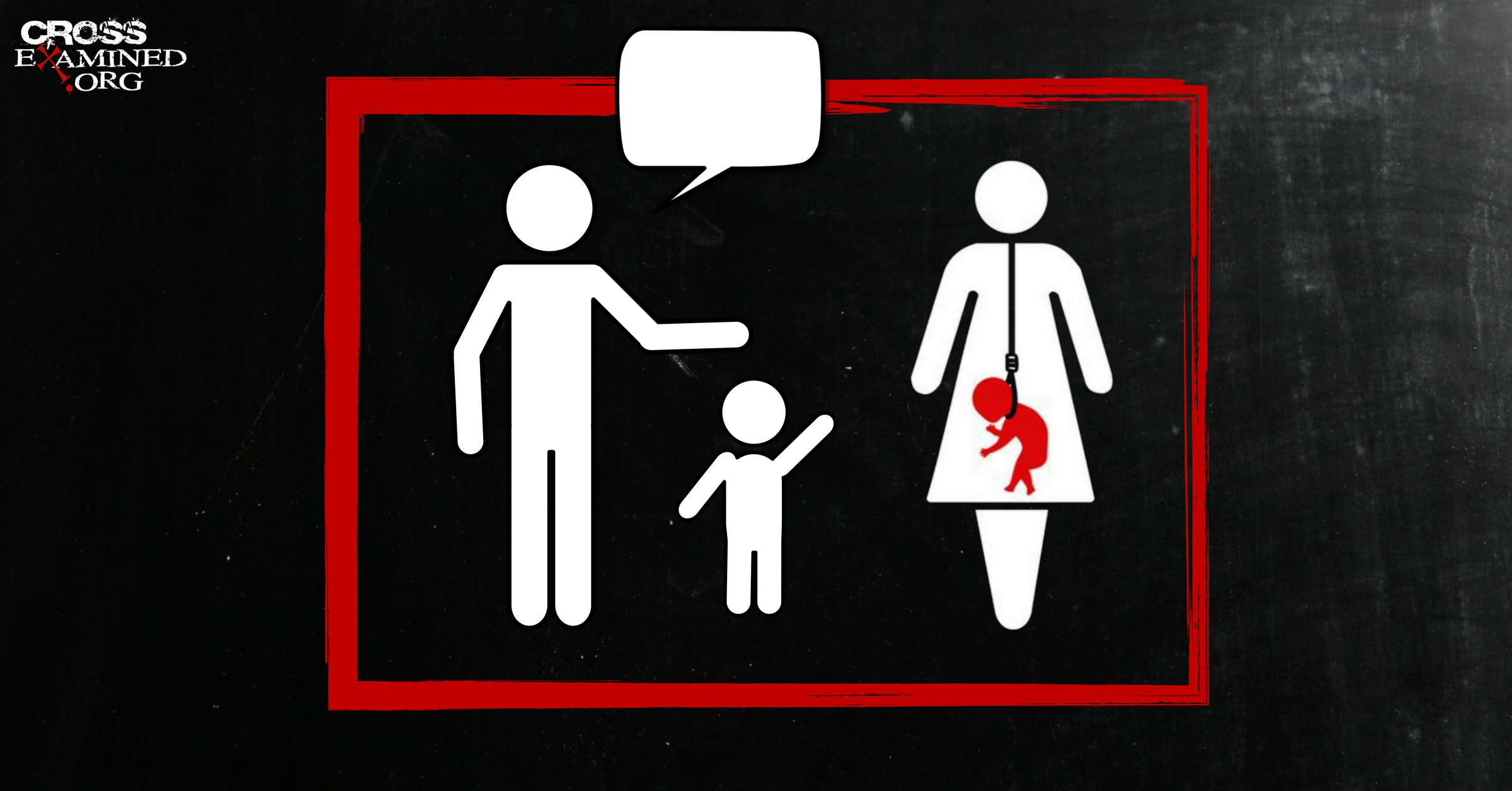
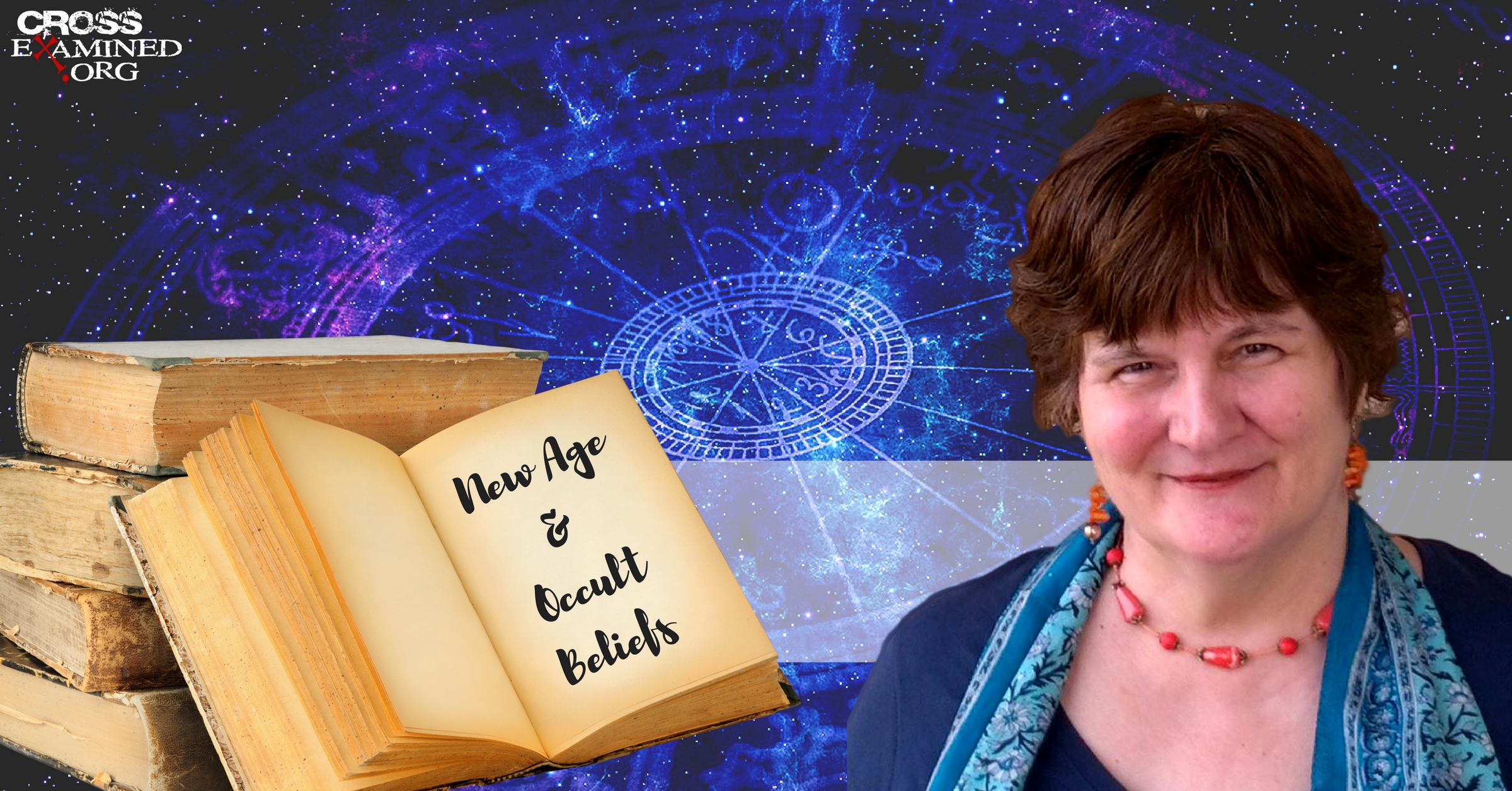
 INFILTRATION OF THE NEW AGE
INFILTRATION OF THE NEW AGE
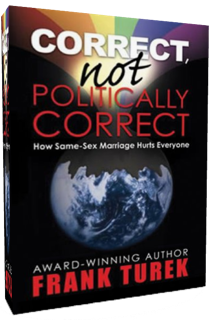 http://bit.ly/2aToY22
http://bit.ly/2aToY22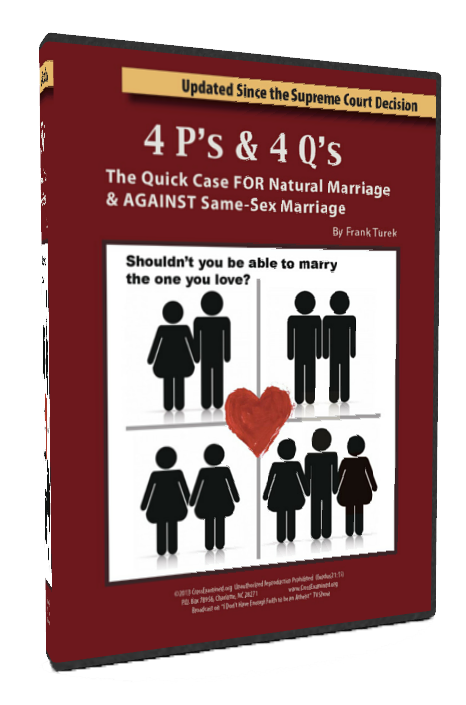 http://bit.ly/2aTpHQF
http://bit.ly/2aTpHQF
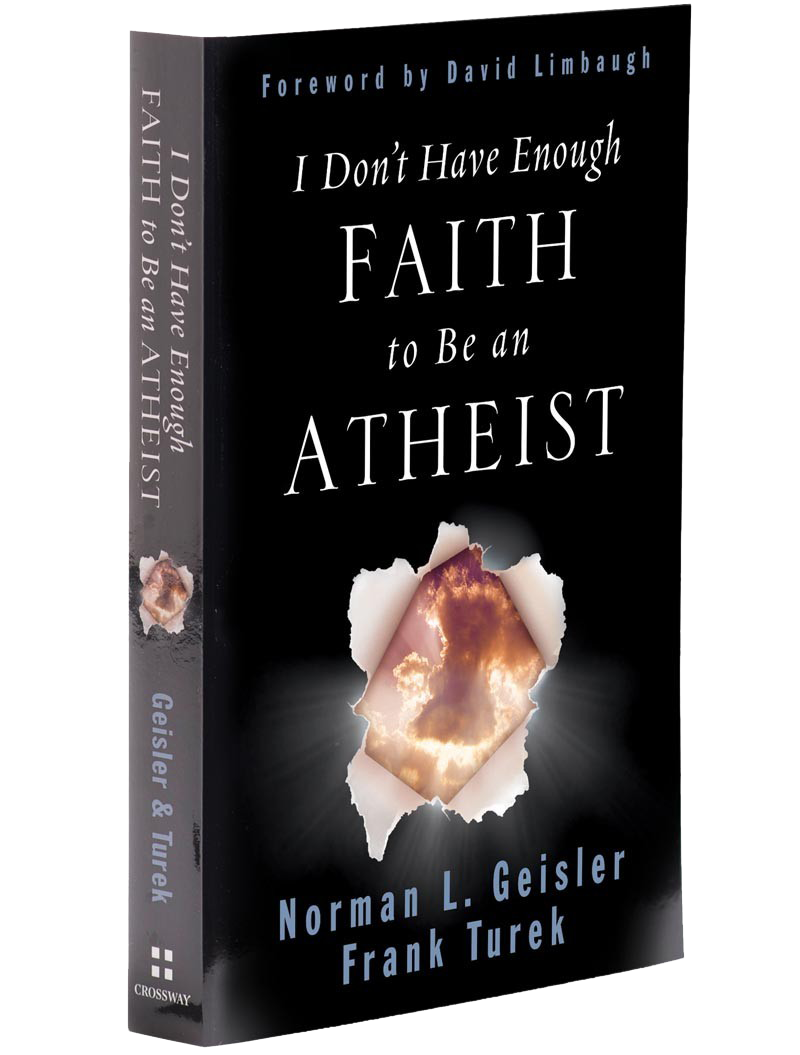 http://bit.ly/2aNRP7F
http://bit.ly/2aNRP7F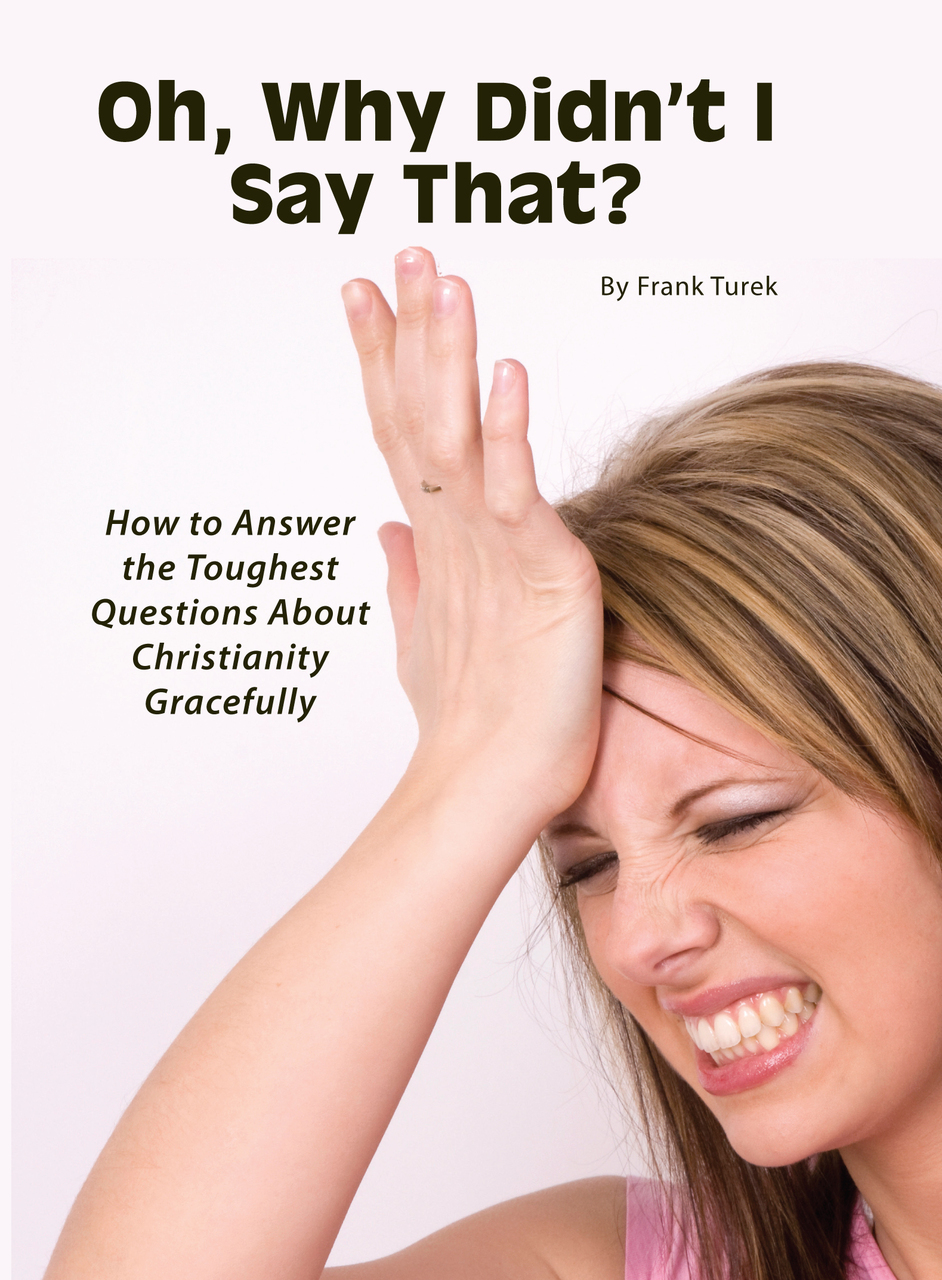 http://bit.ly/2aNSVjW
http://bit.ly/2aNSVjW

